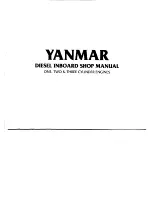
TECHNICAL MANUAL FOR THE RDR BL3 - V1.1 DRIVE ROLLER
Rev. 21/09/2018
page 12
5
Motion transmission systems
It is possible to construct a driven roller conveyor using a Drive Roller connected to several rollers using specially
designed transmission systems. These systems are:
-
Transmission of motion by round straps
-
Transmission of motion by Poly-V belts
The rollers used in this type of conveyor are defined as DRIVEN. The portion of conveyor consisting of the Drive
Roller
connected to "n” driven rollers by belts or straps, is defined as the ZONE.
Depending on requirements, Drive Rollers can also be made with double pinions 1/2" Z=14 for transmission to
chain link driven rollers.
Strap transmission
The straps are polyurethane rings (with different surface finishes, depending on the type of use) Ø 4 or 5 mm.
The extent / endless length of these rings depends on the roller pitch defined during the conveyor design phase.
The rings are obtained by cutting a cord, whose ends are then heat-welded together. For large quantities and
heavy-duty applications, the straps can be manufactured by molding, already closed and without welding.
Contact the strap manufacturer for the definition of the correct extent of the straps. In general, the diameter, the
extent and the pretensioning of the straps depends on the load conveyed; usually
the manufacturers
recommend pretensioning that is not less than 8% of the extent
.
Contact Rulmeca for check of chosen extent or in the event of doubts.
Each strap (like any transmission system) dissipates through its operation, part of the tangential force (Ft) supplied
by the Drive Roller. Allow for a tangential force loss of about 1N per strap. The total loss due to straps must be
subtracted from the tangential force supplied by the Drive Roller to transfer the packages.
Poly-V belt transmission
Using the transmission system with Poly-V belts is the best method to transmit motion to the driven rollers next to
the Drive Roller.
The driven rollers can be moved by Drive Rollers for conveyors even on slight inclines. Using belts with up to 4
ribs (max) for loads of medium weight.
The pulley for Poly-V belts of the Drive Roller enables belts with up to 4 ribs to be used, maintaining a free spacing
groove between the two belts, although most applications (max 50 daN) use 2-rib belts.
Owing to the compactness of the pulleys, there can be a greater free surface on the shell of the rollers and Drive
Rollers, using, where necessary, guards to protect the transmission from possible damage and/or for safety
reasons and to give the roller conveyor a neater appearance (with no visible belts).
To determine the max. transmittable load, the max. number of driven rollers upstream and downstream of the
Drive Roller, and the type of bottom of the conveyable package, if the designer is unskilled, the following data
should be supplied to Rulmeca to enable the chosen solution to be evaluated: type, speed, length and execution
of the chosen Drive Rollers, the number of driven rollers connected to each Drive Roller (in front and behind), min.
and max. dimension of the packages, min. and max. weight of the individual package, total maximum load per
area driven by a single Drive Roller, speed, shape and hardness of the bottom of the packages, environmental
conditions (min. and max. temperature, humidity, indoor, outdoor, rain, possible washing, foodstuffs). Rulmeca
can use this data to check the system designer's choices and advise on possible modifications or limitations.
The Poly-V pulley fitted to RDR Drive Rollers provides superior motion transmission. Internally, the pulley is splined
on the motor's transmission shaft to avoid slippage between the motor and the pulley; externally there is a
transmission tooth between the pulley and shell of the Drive Roller.
This arrangement totally eliminates any slippage between the motor and the pulley and between the pulley and
the tube due to temperature fluctuations or loose coupling between the tube and the pulley.
The direct transmission of motion between the motor and the pulley (Rulmeca patent) together with the mechanical
coupling between the pulley and the tube ensures safe and efficient traction in any working situation.
Summary of Contents for RDR BL3
Page 9: ...TECHNICAL MANUAL FOR THE RDR BL3 V1 1 DRIVE ROLLER Rev 21 09 2018 page 9 RIGHT WRONG...
Page 18: ...TECHNICAL MANUAL FOR THE RDR BL3 V1 1 DRIVE ROLLER Rev 21 09 2018 page 18...
Page 19: ...TECHNICAL MANUAL FOR THE RDR BL3 V1 1 DRIVE ROLLER Rev 21 09 2018 page 19...
Page 21: ...TECHNICAL MANUAL FOR THE RDR BL3 V1 1 DRIVE ROLLER Rev 21 09 2018 page 21...













































